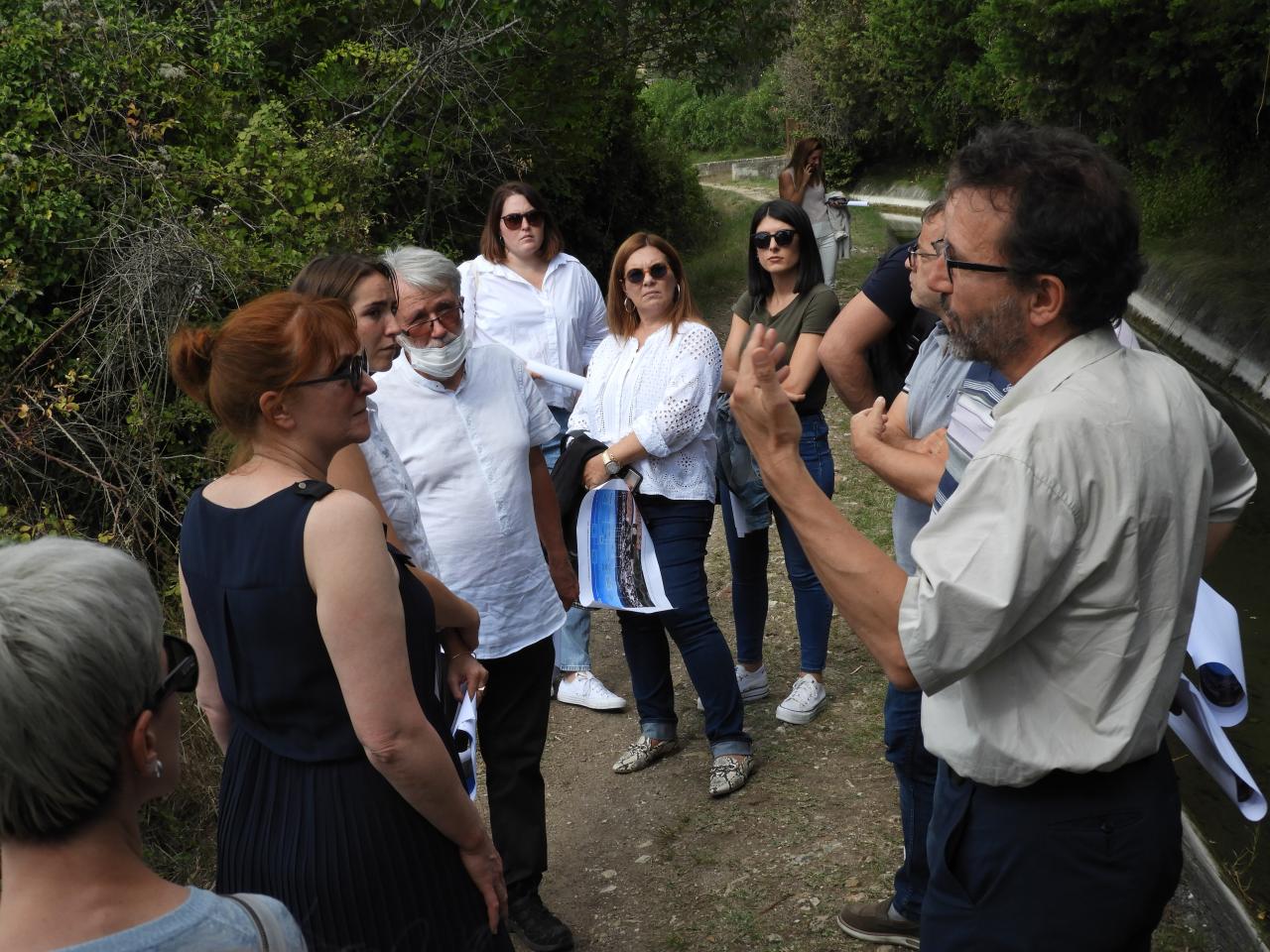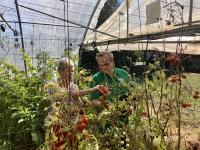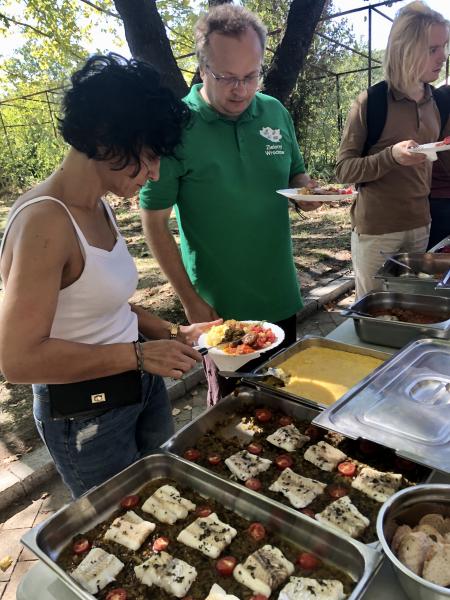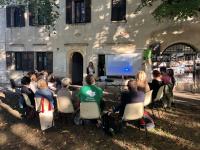
The relevance of the Kick-Off Meeting (KOM) lies in the experience of the Project Partners who get to taste, visualize and believe in the mission they embarked on. And this is marvelous in the case of BioCanteens #2, because getting to know how a 10 000 inhabitants city managed to transform its school's canteens, building a whole system around, is indeed inspiring. And this inspiration is a fundamental engine for Partners Cities to start their virtuous paths.
From the 20th to the 23rd of September, Mouans-Sartoux opened its doors to the Delegations coming from the partners' cities of BioCanteens#2 Transfer Network. A cheerful dinner at the City Castle welcomed the representatives to launch the Kick-Off Meeting held during these three days. Project Coordinators, Elected-Representatives, and Actors of the Territory flew from their respective cities to the sunny Côte d'Azur. The agenda has been planned to show most of Mouans-Sartoux’s comprehensive Territorial Strategy.
This is why the Project Team cared about properly organizing this exchange. The Deputy Mayor for Education Gilles Pèrole as energetic spokesman of the City Vision and its team started presenting how, after the diffusion of the Mad Cow disease, Mouans Sartoux initiated its Transition towards full organic canteens. He illustrated the way the municipality through the Maison de l’Education à l’Alimentation Durable (MEAD) is perpetuating and disseminating these actions, making them resilient over multiple axes.

In the first place, the partners got introduced to the city’s Good Practices happening in schools to make sure that, with zero cost increase, the kids are served with sustainable food. Among these, how is waste monitored and calculated, how are kids accompanied during school meals, and how they are actively involved in the design of their menus? They got described the most efficient narratives to introduce a higher rate of vegetarian meals without arguments and how are parents taking part in the process.
Everything was crowned by a bucolic lunch directly delivered by the school truck. Tasty arrays of seasonal and local food were served to the Partners, who got to taste the food 1300 children get fed with every day. And, I promise, they all did a second round.
The vegetables were picked fresh that same morning from the Municipal Farm, which shares its 6 ha of public land with the Lumia School for Alternative Education. The visit to the farm was among the most triggering for the visitors and raised numerous questions. It was fundamental to deliver the message that territorial policies have the power to transform the vocation of their land. Mouans Sartoux settled up this parcel to the service of the schools and it is thanks to the reallocation of the offer that food sovereignty is visioned.

An Interactive Landscape Interpretation with the Deputy Mayor of Urbanism, Daniel Le-Blay, helped them to understand that the city was condemned by the biggest realities around her, to become a residential sleeping city. Was only the revolutionary approach of the citizens and the politicians that helped to become what is it now. Political engagement is crucial for transition, and, again, the Municipal Farm is a result of this.
One of the Coordinators of the MEAD, Lea Sturton, deals with the often heavy bureaucracy of Public Procurement and presented Mouans Sartoux Strategy to adapt their needs with being legally compliant with European Regulations. The idea was to illustrate to our Partners that Public Procurement Protocols can be re-designed according to sustainability criteria. This strategy helps the re-localization of the purchase and must be the starting point for the transition.

As a constant cross-cutting issue, culture and sensibilization were given their importance in the meetings organized with the visitors. « Culture is about ideas and represents the vision of their promotors. When organizing events and venues, we are advocating for a model of development» said the Director of Environmental Affairs, Frederic Rebouffel. Transformation of our school feeding system goes hand in hand with awareness-wakening campaigns, and it can be denied that culture is the vector to vehiculate civil society engagement.
At the end of the days, a good wine and a socca – chickpeas pancake typique from Nice - felt good and helped reshuffle the information gathered and exchanged. Everyone flew back home, with inspiring hints and ideas on how to move their first steps toward the application of the Good Practice to their contexts. And in the end, everything felt just good.
